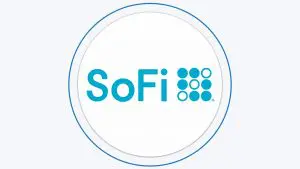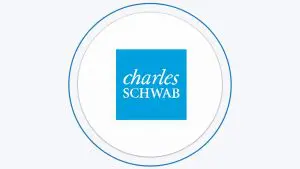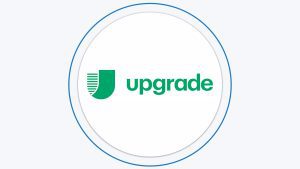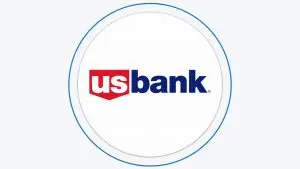Table Of Content
What Is A Rewards Checking Account?
Rewards checking accounts gives incentives for opening and utilizing your checking account. The rewards can be earned automatically as part of the account structure or when meeting specific requirements.
Some rewards checking accounts offer interest payment depending on the account balance or offer a combination of interest, cash back and ATM rebates. For example, cash back on purchases made using a card. The incentives or rewards are meant to keep you engaged with your financial institution.
Rewards checking accounts may have criteria for earning rewards. For example, the bank may require that you enroll for specific services, maintain a minimum account balance and use your debit card a given number of times. Therefore, it is important to know the requirements to get the best checking accounts for your needs.
Rewards vs. Traditional Checking Account: Key Differences
Rewards and traditional checking accounts are different in the following ways.
- Rewards Features
Both traditional and rewards checking account allows you to write checks and provides access to debit cards that you can use for withdrawals and purchases.
Also, it may charge monthly maintenance fees, but most banks waive the fee if you meet certain requirements, for example, if you maintain an average minimum daily balance.
The main difference, you guessed right, is the rewards. Rewards checking accounts have special features and perks. For example, cash back on your credit cards for everyday purchases.
- Requirements
There are different minimum requirements for you to open a traditional checking account or rewards checking account. A traditional checking account is a great way to build a reliable foundation for your money if you are not interested in special features and perks.
On the contrary, rewards checking accounts has different requirements – for example, minimum spend to get the rewards, minimum balance to get rates on balance etc. Sometimes, rewards checking accounts have complicated requirements that might make it hard to enjoy their full benefits.
Pros and Cons of Rewards Checking Accounts
Here are the main pros and cons you should know when considering a rewards checking account:
Pros | Cons |
|---|---|
Cashback | Better APY On Savings |
Interest | Barriers To Entry |
- Cashback
The account can put some money back into your account if you meet set requirements.
- Interest
Certain rewards checking accounts pay interest on certain monthly balances. The interest acts as a form of cashback.
- Better APY On Savings
Most rewards checking interest rates are lower than APY you can find on savings accounts.
So, instead of carrying a balance on a checking account, you can choose a regular checking account with a high APY on savings.
- Barriers To Entry
The requirements for rewards checking accounts may be hard to fulfil. Besides, the conditions of earning perks are not always easy.
Top Offers From Our Partners
• Receive a cash bonus of $1,500 when you deposit or invest $100,000 – $199,999.99
• Receive a cash bonus of $2,000 when you deposit or invest $200,000 – $299,999.99
• Receive a cash bonus of $2,500 when you deposit or invest $300,000 – 499,999.99
• Receive a cash bonus of $3,500 when you deposit or invest $500,000+
• Earn an extra $500 when you set up recurring monthly Direct Deposits totaling at least $5,000 for 3 months
Top Offers From Our Partners
• Receive a cash bonus of $1,500 when you deposit or invest $100,000 – $199,999.99
• Receive a cash bonus of $2,000 when you deposit or invest $200,000 – $299,999.99
• Receive a cash bonus of $2,500 when you deposit or invest $300,000 – 499,999.99
• Receive a cash bonus of $3,500 when you deposit or invest $500,000+
• Earn an extra $500 when you set up recurring monthly Direct Deposits totaling at least $5,000 for 3 months
How to Choose Rewards Checking Account
There are different factors to consider when choosing rewards checking account. When choosing the right account, you need to consider what you want the account to do for you.
You can check and compare the major fees, including maintenance, insufficient funds, overdraft, and ATM surcharge fees. While doing your comparison, you can check to see if the bank offers fee reimbursements
Below are the things to consider when choosing the right rewards checking account.
- Interest: When choosing the best rewards checking account, it is best to look at the interest the account earns and how the rate is applied.
- Monthly balance. Some rewards checking accounts have monthly balance requirements that you must meet to receive certain perks. If you are looking for an account with low bank fees, it is important to consider how your monthly balance compares to what the bank requires.
- Banking habits. When choosing an ideal rewards checking account, you must ensure it is suitable and aligned with your banking habits. For example, you can check its branch, ATM access, mobile banking features and other essential features of a checking account.
- Fees. Fees are an important consideration when choosing different checking accounts. An account with more fees potentially costs more.
It is important to review the account disclosures and compare the fees of the different accounts.

How to Open Rewards Checking Account
Before opening a rewards checking account, you must ensure you have the necessary identification documents and initial deposit.
Opening rewards checking account varies by bank, but it usually involves the following steps.
1. Get Your Documents Ready
The identification documents you can use to verify your identity and eligibility include your photo ID, proof of address, SSN or ITIN and contact information.
2. Fill Out An Application
After gathering the identification documents and proof of address, you can fill out the application in person or online.
Filling out the application in-person entails visiting the nearest branch of your chosen bank. You can complete the online process by visiting the website of your preferred bank.
Filling out the application involves writing your name, date of birth, address, employment history, SSN or ITIN, among others.
3. Add Minimum Deposit For Opening
After filling out your application, you pay the first deposit if required. After paying the first deposit, the bank approves your account, and you start using it.
The initial deposit requirement varies from as low as $5 up to $100. However, some banks do not require any deposit while opening a rewards checking account.
4. Submit Your Application
In some banks, you are not required to pay an opening deposit before using your rewards checking account. In such banks, you start using the account as soon as you fill out your details and the bank approves it.
After submitting your application, you should get an email with your application status and additional details on how to start using your account.
What Banks Offer a Rewards Checking Account?
Not all banks offer rewards checking accounts, so you have to choose the best from the banks that offer them.
Below are the banks that offer rewards checking accounts.
Bank/institution | APY Checking | Promotion | |
|---|---|---|---|
| Capital One 360 Checking | 0.10% | None |
| Up to 3.30% APY
to get the maximum rate (up to $50,000) you'll need monthly direct deposits of $1,500 (0.40% APY), 10 transaction on your debit card (+0.30% APY), average daily balance of $2,500 on Axos Invest Managed Portfolio (+1.00% APY), average daily balance of $2,500 on Axos Invest Self Directed Trading Account(+1.00% APY) and make full monthly payment on loans (mortgage, personal and auto) with Axos account (+0.60% APY).
| $300
Use Promo Code “AXOS300” for a $300 bonus when you apply for a Rewards Checking account
| |
 | 1.00% | None | |
| None | 1% cash back On up to $3,000 in debit card purchases each month | |
| 0.50% | $50 – $300
Minimum deposit of $1,000 – $5,000
| |
 | Up to 1.10% | None | |
| up to 0.15% | None |
Alternatives to Rewards Checking Account
There are cases when rewards checking accounts are not for you, and you may be considering their alternatives.
Below are the alternatives that you can consider.
- Online Banks
Online bank accounts offer competitive APY on your deposits, early direct deposit options, and automated saving tools.
They can serve as alternatives to your rewards checking account based on what they offer. Also, digital bank accounts offer budgeting features, minimal fees and good customer service.
- High Interest Savings Accounts
You can consider opening high-interest savings accounts that reward you with a much higher annual percentage yield that earns some money into your account every month.
FAQs
Is the Interest on Rewards Checking Accounts Taxable?
Yes. The interest forms part of your interest income, and you are required to pay taxes on your interest income.
Also, you are required to report the interest irrespective of the amount. You may be required to add the interest payments to your rewards checking account to get the total.
Can I Open a Rewards Checking Under 18?
You must be 18 years old and have a Social Security Number to open a rewards checking account. The accounts are available to U.S citizens and permanent residents in the country.
The requirements to open an account vary from bank to bank, but most banks require basic information to identify and protect your identity.
















